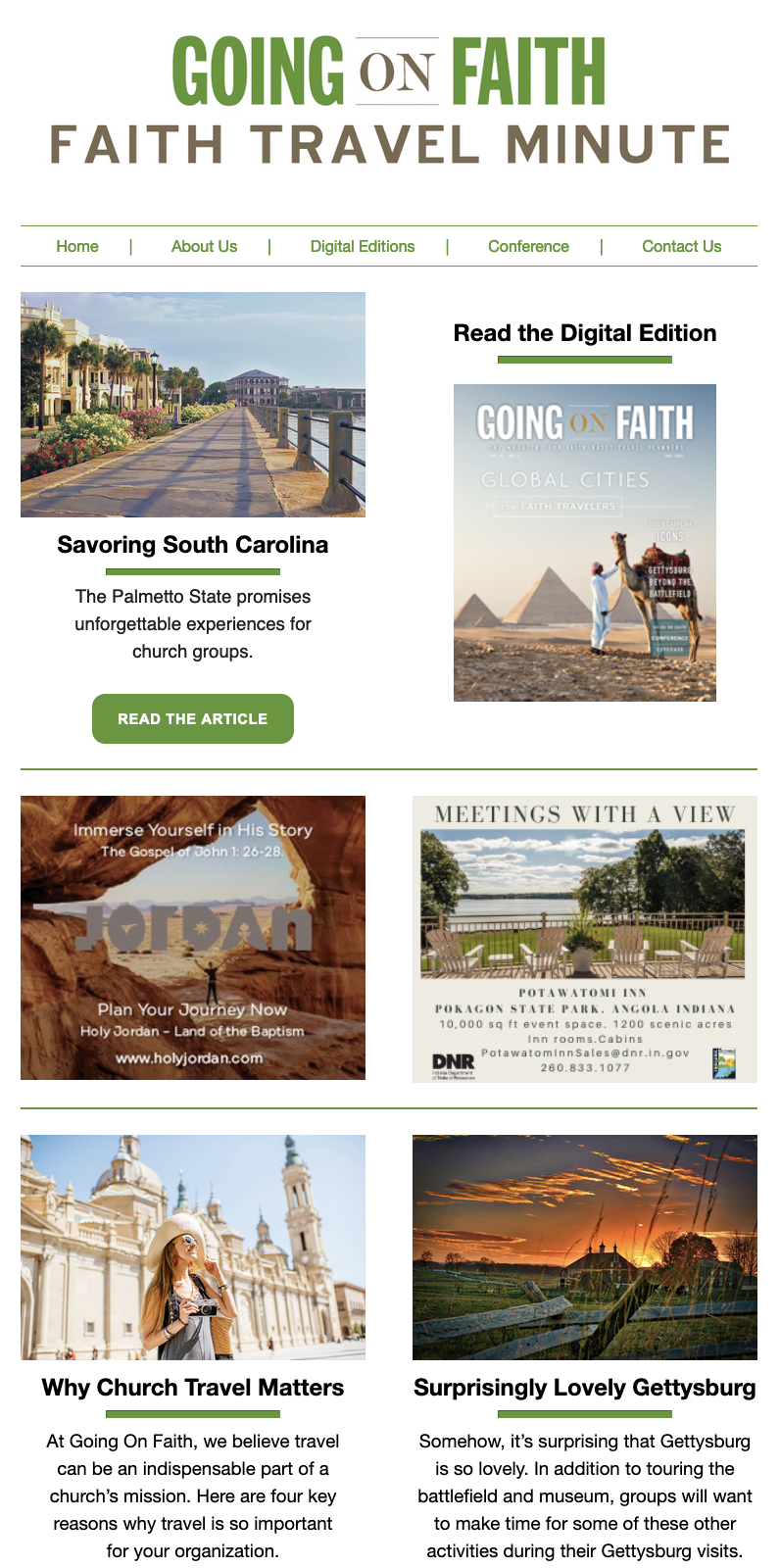Bigger isn’t always better.
Most of us have been conditioned to believe success is a matter of quantity, especially when it comes to business. A sold-out trip with 50 passengers is often considered a triumph. So does that make a less popular trip with a smaller group a tragedy?
Maybe not. Many newer tour companies are shooting for groups of 12 to 15 travelers. And if reports I’m reading are true, Gen Z is discovering the appeal of group travel — but they want to travel in smaller groups, not sold-out motorcoaches.
If the future of church travel means smaller groups, travel planners will likely have to rethink how they arrange — and price — their trips. But that’s not necessarily bad news. Here are a few benefits smaller groups could bring.
Less Risk
Every person who comes on your trips brings some risk with them. They may get sick, injured or lost. They may have an allergic reaction to a meal. They may be disagreeable and cause difficult group dynamics. They may drive you crazy with criticisms or complaints. The more people you have on your trip, the greater the risk. Smaller groups reduce that risk, which increases your chances of enjoying stress-free travel. And if an issue does come up, it will impact fewer people.
More Space
Travel planners love to see their motorcoaches packed full, but travelers generally don’t. Coach travel is much more enjoyable when everyone has room to spread out. Smaller groups make this possible (albeit at a higher per-person cost). They also allow you to consider alternative transportation options, such as smaller vehicles, rideshares or public transit. This principle also applies when you plan a guided tour or similar experiences — smaller groups giver everyone more breathing room and opportunities to interact with the guides.
Easier Reservations
Travel planners around the country tell me that getting group restaurant reservations has become the hardest part of their job. Finding a restaurant willing to seat 50 people for dinner may be challenging. Often, this isn’t because the restaurant doesn’t have tables for that many people but because it doesn’t have enough staff to serve them all at once. Smaller groups may help solve this problem. If your group is only 25, it will likely be much easier to book space at the restaurant you want.
Deeper Connections
If you take a three-day trip with 50 people, you’ll hardly find time to speak with each of your customers. Take the same trip with half as many, though, and you’ll have much better chances of spending quality time with every one of them. If relationship-building and ministry are important parts of your travel organization’s mission, smaller trips give you more opportunities to forge deep connections and have meaningful conversations that help people develop a sense of belonging in your faith community.
Room to Grow
A pastor friend once told me he likes seeing empty seats in the sanctuary on Sunday mornings because he wants church members to feel there’s plenty of space to invite friends. That outlook can be applied to group trips as well. A trip that sells out quickly can make you feel good as a travel planner, but it may also create feelings of frustration or alienation among your community members. Small groups allow you to cultivate a culture that invites and welcomes outsiders and then scale up organically as your travel tribe grows.










